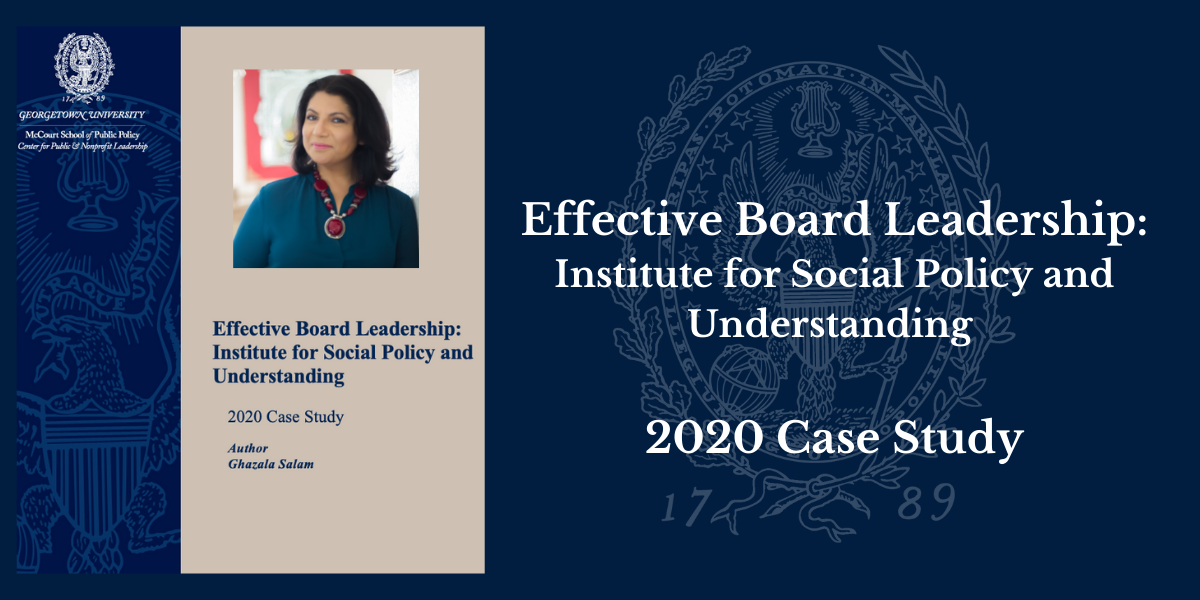Effective Board Leadership: Institute for Social Policy and Understanding Case Study

Posted in News Story
August 5, 2021
This case study was written by Ghazala Salam, an alumna of the Center for Public and Nonprofit Leadership’s Summer 2020 Nonprofit Management Executive Certificate Program. She has worked within and outside of the American Muslim nonprofit sector for over a decade. Ghazala finds that too many boards struggle to perform their duties, let alone realize their greatest potential. Despite having a passion for the mission, some boards just don’t seem to work.
According to the Muslim Philanthropy Initiative at Lilly School of Philanthropy, there are an estimated 7000 Muslim Nonprofits in the US. Based on a 2015 report from Stanford University, half of all US nonprofit directors believe their fellow board members are not engaged in their work with the organization, while a third are not satisfied with the board’s ability to evaluate the performance of the organization. Approximately 70% of nonprofit boards do not have a succession plan in place and 40% do not have a mechanism to measure their performance and growth.
Many nonprofits have faced one or more of these serious governance-related challenges. Given this context, Ghazala decided to write this first-of-its-kind case study that documents the commitment of an American Muslim-led nonprofit to advancing its board leadership. The examples in this case study explore real vulnerabilities, challenges, and lessons learned by the Institute of Social Policy and Understanding’s board. Whether you are leading an established nonprofit or starting one from scratch; whether you are a CEO, board chair, or staff lead for the board—we hope this study will serve as a resource to build your leadership.
